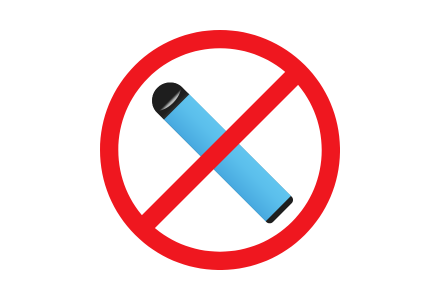 Were it to come into effect, the UK’s proposed national ban on single-use disposable vapes, due to become law on 1 June 2025, would have slashed youth vaping and cut electronic waste or so many thought. But fresh industry data indicate that the move has inadvertently sparked a new environmental headache.
Were it to come into effect, the UK’s proposed national ban on single-use disposable vapes, due to become law on 1 June 2025, would have slashed youth vaping and cut electronic waste or so many thought. But fresh industry data indicate that the move has inadvertently sparked a new environmental headache.
Ban Sparks “Reusable” Device Boom — And Waste
Five point three million reusable pod vape kits were sold in the month after the ban, new data shows, but only 1.4 million refill pods came with them, And, as we’ve said on this site, it is not the hardware, it’s the liquid that is doing the harm.” Nearly 4 million devices could then be thrown away after being used only once, effectively negating the environmental goals of the ban.
Environmental Ambitions Meet Consumer Habits
The ban was brought in to help the environment and to stop young people becoming addicted to the devices by banning non-rechargeable, non-refillable vapes. The government referred to estimates that almost five million throwaway vapes were being dumped each week by 2024.
But the industry has changed tack, pivoting sharply to focus on pod-based, refillable vapes that would arguably comply for now with the law. In theory, such systems should reduce waste. In reality, consumers are still treating them as disposable due to a perception of convenience and cost. For many, this is less cumbersome or less expensive than purchasing refill pods over and over.
Changing What We Waste — and Recycling Systems that Don’t Measupe Up
Behavioral change takes time. Users accustomed to “grab-and-go” usage find a refill model difficult to adapt to. In the absence of incentives or a clear and affordable way to refill, they opt for the familiar. Yet, recycling capacity within the UK has remained stagnant, adding urgency to questions of systemic capability and public understanding.
Recommendations for a Sustainable Transition
Bridge Supply and Demand Gaps
Incentivize new product sales by requiring manufacturers/retailers to package refill pods with the new devices, or provide a consumer financial reward, return, or disposal fee.
Build Recycling Capabilities
Scaling up sites of collection and streamlining take-back programs (particularly in retail and the public space) – making it convenient for consumers to participate.
Educate Consumers
Initiate public awareness campaigns on the environmental and cost advantages of refilling, not dumping. The public messaging should emphasize both convenience and responsibility.
Revisit Policy Tools
Perhaps think about regulations that make it necessary to sell pods more cheaply, or that include deposit-return schemes. Observe new usage patterns to adjust the measure accordingly.
Public Policy and Consumer Behavior at a Crossroads
The UK lesson is that regulation, important as it is, must come alongside market preparedness and consumer backing. Limiting product types is one half of the answer. It is making sure that the sustainable alternatives are workable, affordable and supported – and that will get the real environmental outcomes that the ban is aiming for.
Post time: 08-21-25
